The Best Game Genres for Developing Cognitive Skills
The truth is, video games aren't just for entertainment. Depending on the game, they can act as mental workouts that engage the brain in ways that traditional activities simply can’t match. At FOGYX, we understand that the right kind of game can do more than just pass the time—it can help build a sharper, more adaptive mind.
So, which game genres are the best for enhancing cognitive skills? Let’s dive in and explore how different types of games can give your brain a boost.
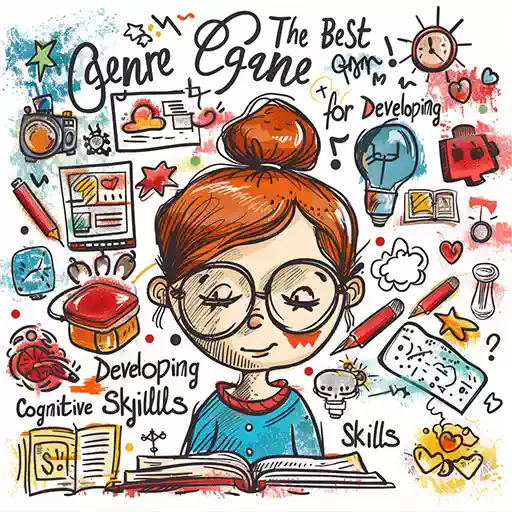
1. Puzzle Games: Exercising Problem-Solving and Logic
If there’s one genre known for its cognitive benefits, it’s puzzle games. These games are designed to challenge your brain, often requiring you to think critically, spot patterns, and solve problems in creative ways. Whether you’re moving pieces around, figuring out logic sequences, or solving riddles, puzzle games make sure your brain is always working.1.1 Engaging Your Brain in Critical Thinking
Puzzle games are the masters of critical thinking. Take a game like Portal, where players must manipulate physics to solve puzzles. Every level requires a different approach, and as you progress, the challenges force you to think several steps ahead. You don’t just play these games—you solve them.By constantly engaging players in challenges that ramp up in complexity, puzzle games help improve your logical reasoning and problem-solving abilities. The more you play, the more your brain learns to adapt and find solutions.
1.2 Pattern Recognition and Memory Boosts
Many puzzle games also excel at developing pattern recognition and memory skills. Take classics like Tetris or Bejeweled, where you need to recognize shapes and colors quickly to succeed. These games train your brain to spot patterns at a faster rate and act on them efficiently. Additionally, games like Lumosity specifically focus on brain-training exercises that improve working memory and cognitive flexibility.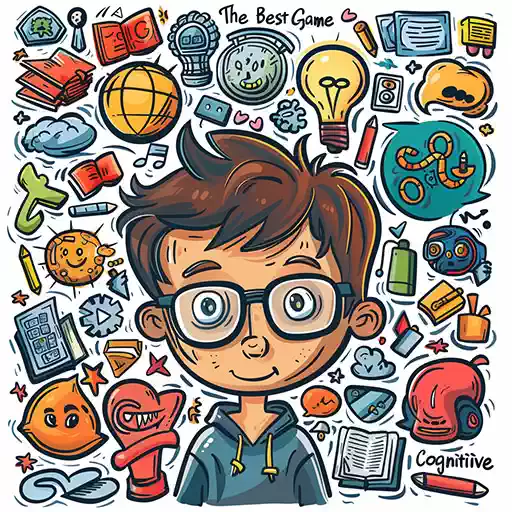
2. Strategy Games: Building Decision-Making and Planning Skills
When it comes to decision-making and planning, strategy games are king. Whether they’re real-time strategy (RTS) or turn-based strategy (TBS) games, these titles push players to think ahead, manage resources, and adapt to changing situations—all crucial elements for sharpening cognitive skills.2.1 Real-Time Strategy (RTS): Quick Thinking Under Pressure
RTS games like Starcraft or Age of Empires are built around the concept of quick thinking and rapid decision-making. In these games, players must simultaneously manage multiple tasks—gathering resources, building armies, and launching attacks—all while reacting to an opponent’s moves in real-time.This constant juggling of responsibilities requires multitasking and forces players to make snap decisions. It’s not just about thinking fast, but also thinking smart. The brain learns to handle stress and make complex decisions on the fly, skills that translate to real-world situations where timing and quick reflexes matter.
2.2 Turn-Based Strategy: Tactical Thinking and Long-Term Planning
On the other side of the spectrum are turn-based strategy games like Civilization and XCOM. Unlike RTS games, these titles give players time to carefully plan each move, fostering tactical thinking and long-term planning. Every decision you make will impact the game’s outcome, whether it’s choosing where to allocate resources or deciding how to respond to an enemy threat.Turn-based games teach players to think critically about the consequences of their actions and encourage strategic foresight. This genre allows for deeper contemplation, helping improve your brain’s ability to analyze and solve complex problems over time.
2.3 Learning from Failure
One of the key cognitive benefits of strategy games is how they handle failure. These games encourage you to learn from your mistakes, adapting your strategy for the next round. By consistently analyzing what went wrong and how you can improve, you develop stronger problem-solving and critical thinking skills.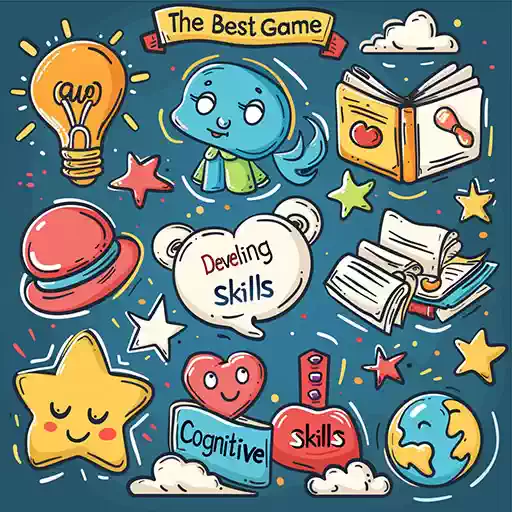
3. Role-Playing Games (RPGs): Enhancing Memory and Decision-Making
Role-playing games (RPGs) are another genre known for their ability to develop cognitive skills, particularly in areas like memory, decision-making, and narrative comprehension. RPGs typically offer expansive worlds, intricate plots, and characters that players must keep track of, often over long play sessions.3.1 Memory and Information Retention
Many RPGs, like The Witcher 3 or Final Fantasy, present players with expansive worlds full of quests, characters, and lore. Navigating these worlds requires players to remember a vast amount of information—where certain items are located, how different characters interact, and what quests need to be completed.RPGs test and improve your memory by requiring you to retain and recall this information over extended periods of time. The more complex the game’s world, the more your brain is forced to adapt and strengthen its capacity for information retention.
3.2 Moral Choices and Complex Decision-Making
RPGs are also known for their focus on moral choices and complex decision-making. Games like Mass Effect or Dragon Age present players with ethical dilemmas that require careful thought. Every choice you make can impact the game’s storyline, so players are encouraged to weigh the pros and cons of each decision.These moral quandaries push players to think critically about the consequences of their actions, developing decision-making and ethical reasoning skills that can be useful in real life. The ability to consider multiple outcomes before making a decision is a key cognitive skill, and RPGs help hone this ability through interactive storytelling.
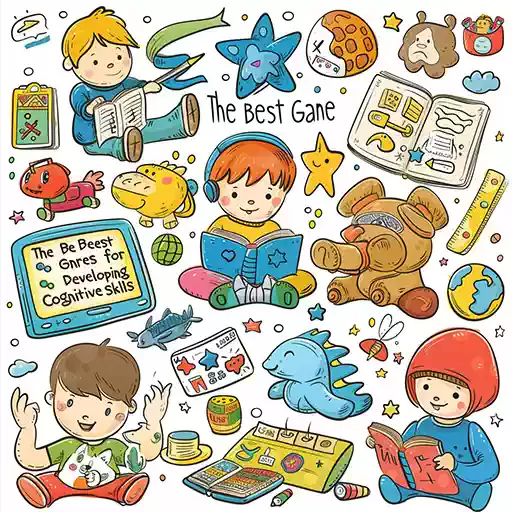
4. First-Person Shooters (FPS): Improving Reflexes and Spatial Awareness
While first-person shooters (FPS) are often seen as pure action games, they offer significant cognitive benefits, particularly in areas like reflexes, spatial awareness, and hand-eye coordination. Games like Call of Duty, Overwatch, and DOOM might seem like adrenaline-fueled chaos, but they engage the brain in ways that improve cognitive function.4.1 Quick Reflexes and Reaction Times
FPS games are built around split-second reactions. Players need to assess a situation, aim, and shoot within milliseconds to succeed. This kind of gameplay improves hand-eye coordination and reaction times, training your brain to process visual and auditory information faster and respond with precision.These rapid-fire decision-making skills aren’t just useful in gaming—they can improve your ability to respond quickly in real-world scenarios where fast reflexes matter, such as driving or playing sports.
4.2 Spatial Awareness and Navigation
FPS games are also excellent for developing spatial awareness. Navigating through 3D environments at high speeds while tracking enemies and objectives requires a keen understanding of space, depth, and movement. Games like Battlefield and Halo force players to constantly assess their surroundings and react accordingly.This heightened sense of spatial awareness translates to real-life situations, improving your ability to navigate complex environments, estimate distances, and better understand how objects move in space.
5. Simulation and Management Games: Boosting Cognitive Flexibility and Planning
Simulation and management games—think SimCity, The Sims, or Planet Coaster—focus on building, managing, and optimizing virtual worlds. These games engage the brain in planning, multitasking, and decision-making, all of which are critical cognitive skills.5.1 Cognitive Flexibility and Multitasking
Management games often require players to multitask and keep track of several factors at once. Whether it’s managing resources, responding to a crisis, or building a city from the ground up, simulation games test and improve your ability to juggle multiple tasks simultaneously.This kind of cognitive flexibility is invaluable in real life, where managing multiple priorities efficiently is a key to success in many professions. By constantly switching between tasks, your brain becomes better at adapting to new challenges and shifting focus.
5.2 Planning and Resource Management
One of the core features of simulation games is resource management. In games like Cities: Skylines or Football Manager, players must allocate resources, balance budgets, and plan for long-term success. These games teach players to think critically about how to optimize systems and develop efficient strategies.The cognitive benefits of simulation games go beyond just entertainment—they help improve your brain’s ability to plan, organize, and manage resources effectively, all essential skills for real-world problem-solving.
Conclusion: Gaming for Cognitive Growth
The idea that video games are mindless entertainment is long gone. Today, we understand that the right kind of games can act as powerful tools for cognitive development. Whether it’s the problem-solving mechanics of puzzle games, the tactical planning required in strategy games, or the quick reflexes needed in FPS titles, gaming is far more than just a pastime—it’s brain training disguised as fun.At FOGYX, we know that the potential for learning and growth through gaming is limitless. By embracing the cognitive benefits of different game genres, players can improve essential skills like memory, decision-making, and spatial awareness—all while having a blast. So next time you pick up the controller, remember: you’re not just playing a game—you’re leveling up your brain.
22 January 2025
More articles
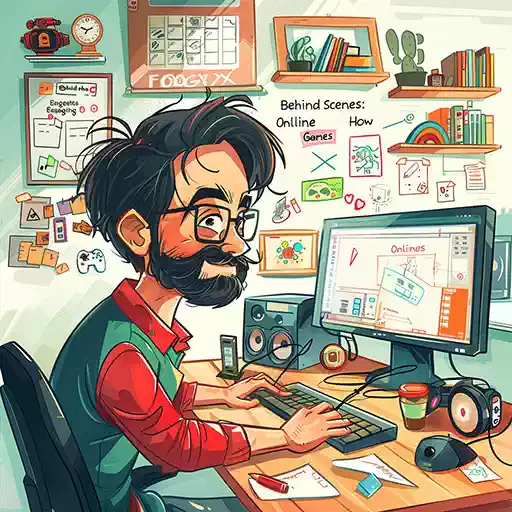
Creating a game is an art, a science, and a little bit of magic all rolled into one. At FOGYX, we’ve taken on the challenge of crafting immersive, engaging, and exciting free online games for players around the world. But what does that process look like behind the scenes? How do we go from a simple idea to a fully realized game that captures attention and keeps players coming back for more? In this article, we’re going to dive into the world of game development at FOGYX and walk you through the entire process—from brainstorming to launch and beyond.
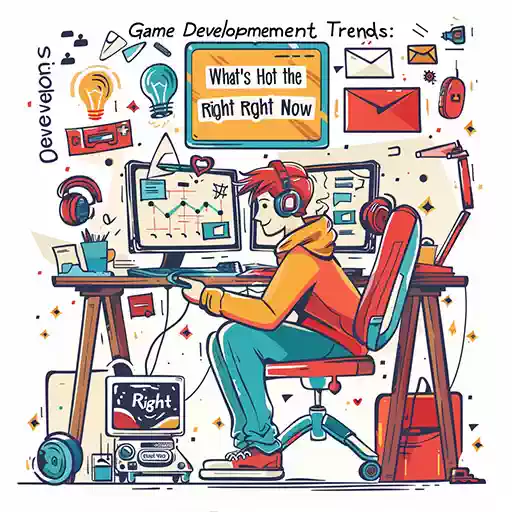
The gaming industry is one of the fastest-growing and most innovative sectors in entertainment. With new technologies emerging and player expectations evolving, the way games are developed is changing rapidly. Every year brings fresh trends that redefine how we think about gaming—whether it’s the rise of new genres, the push for inclusivity, or technological advancements. At FOGYX, we stay on top of these trends to ensure our games remain engaging, innovative, and, most importantly, fun.
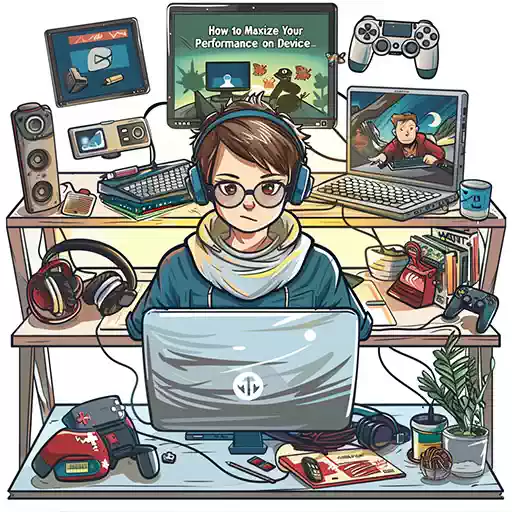
As gamers, we’ve all been there—right in the middle of an intense battle or the final moments of a difficult quest, only to experience a sudden lag, a drop in frame rate, or an unresponsive control. It’s frustrating, right? But the good news is, no matter what device you’re gaming on—whether it’s a high-end PC, a console, or a mobile phone—there are ways to optimize your performance and ensure a smooth gaming experience.
all articles
